While this restaurant in the Nagano-Kiso area is renowned and popular, it’s almost on the cusp of being considered a “hidden gem.”
They are closed on weekends and only open for a brief two-hour window during the day.
It might not be the easiest place to visit casually, but it’s definitely worth the effort for those seeking a unique soba experience.
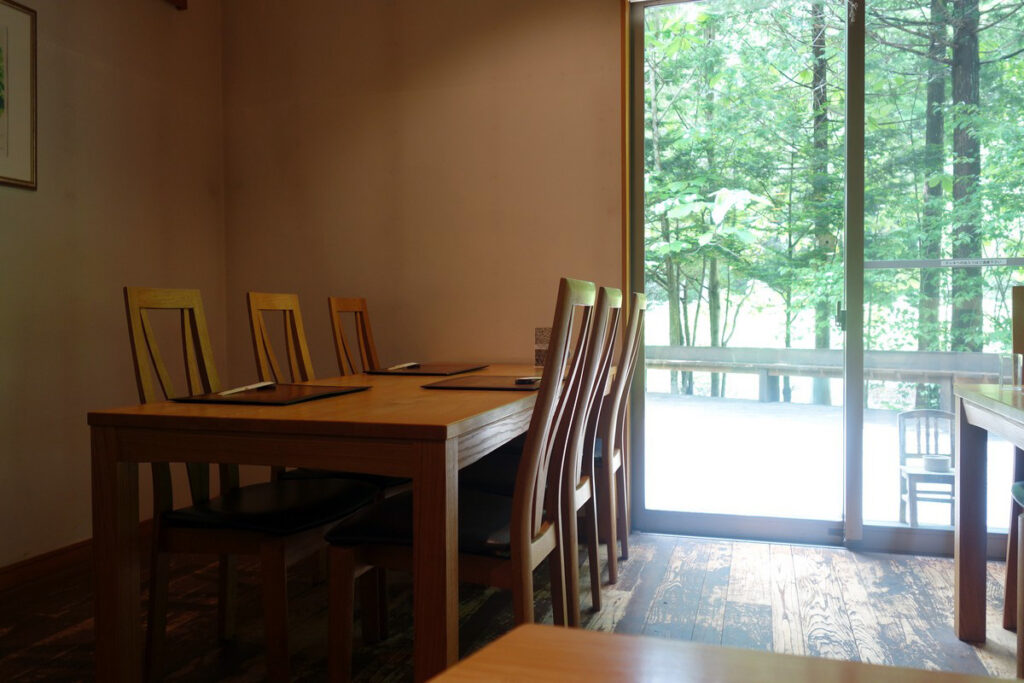
Ave. Budget: Lunch 1,000-2,000 JPY
Check information on Tabelog
Restaurant features
In the Nagano-Kiso area, this restaurant is well-known and popular, to the point where it’s almost deserving of the title “legendary.” It’s not the kind of soba restaurant you casually visit since it’s closed on weekends and only open for a short 2-hour period during the day.
The location is about a 15-minute drive from Kisofukushima. Situated at the entrance to Kaita Highlands, it’s in a quiet area with few buildings around.
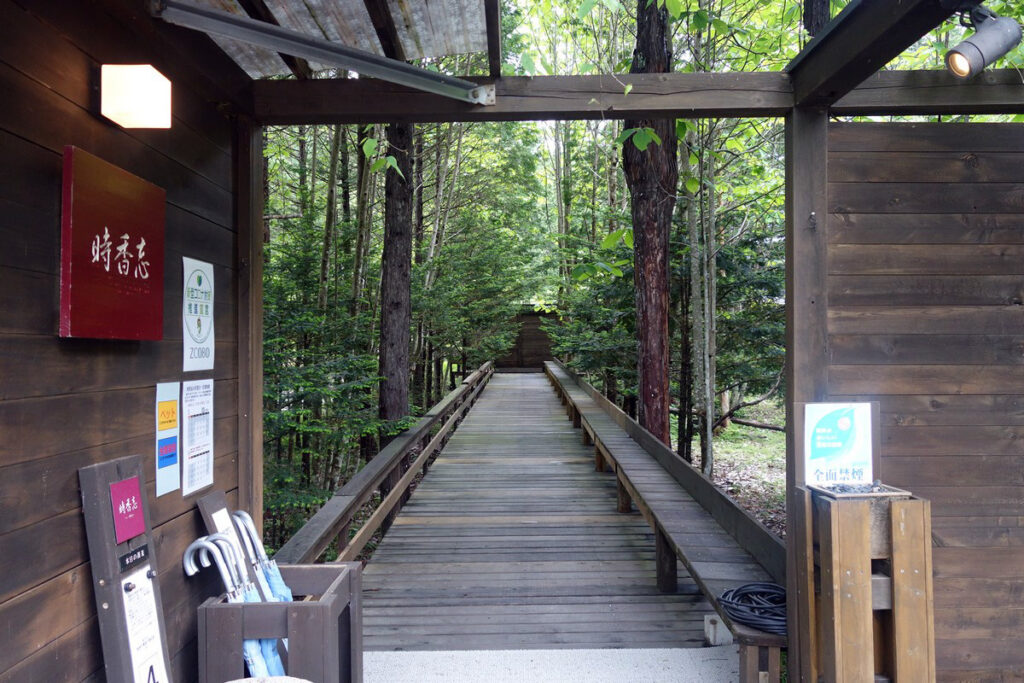
The restaurant has a long approach from the parking lot entrance, which adds to the sense of transition.
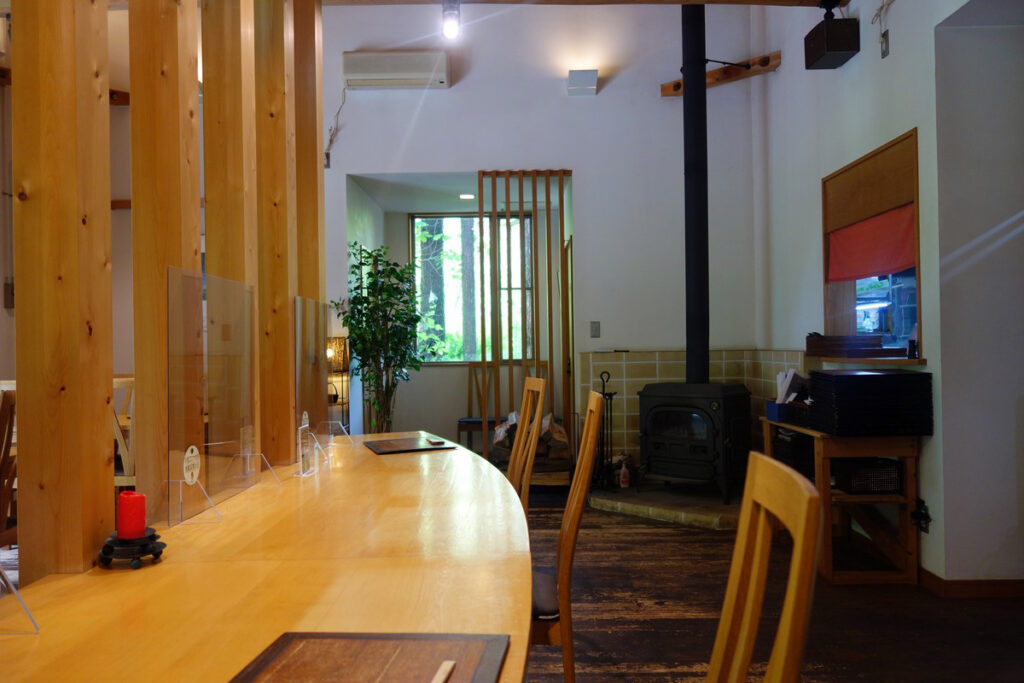
Unlike the typical roadside diners, the dining area here has a stylish atmosphere reminiscent of a vacation home.
They have revived the traditional soba-making technique that uses aged soba flour and mountain vegetables as a binder.
The soba itself is quite unique. Although the offerings may change from day to day, they usually have 3 to 4 types of soba on the menu.
Apart from soba, they only serve soba-ko (soba flour).
There are no tempura or other distractions; the focus here is clearly on the soba itself.
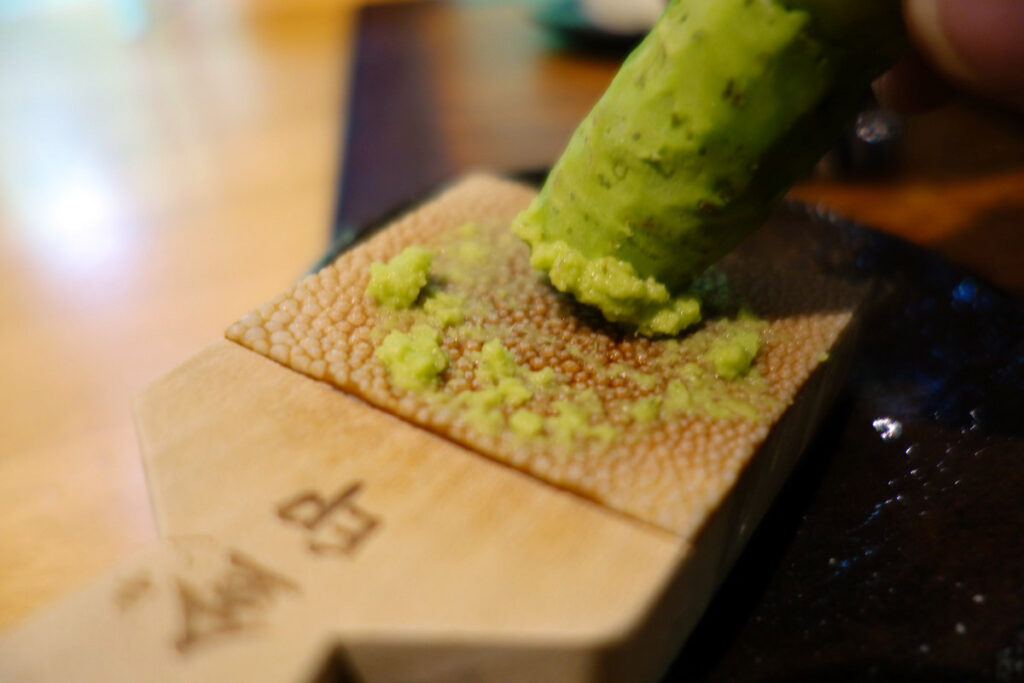
When you place your order, they bring you fresh wasabi to grate while you wait for your soba.
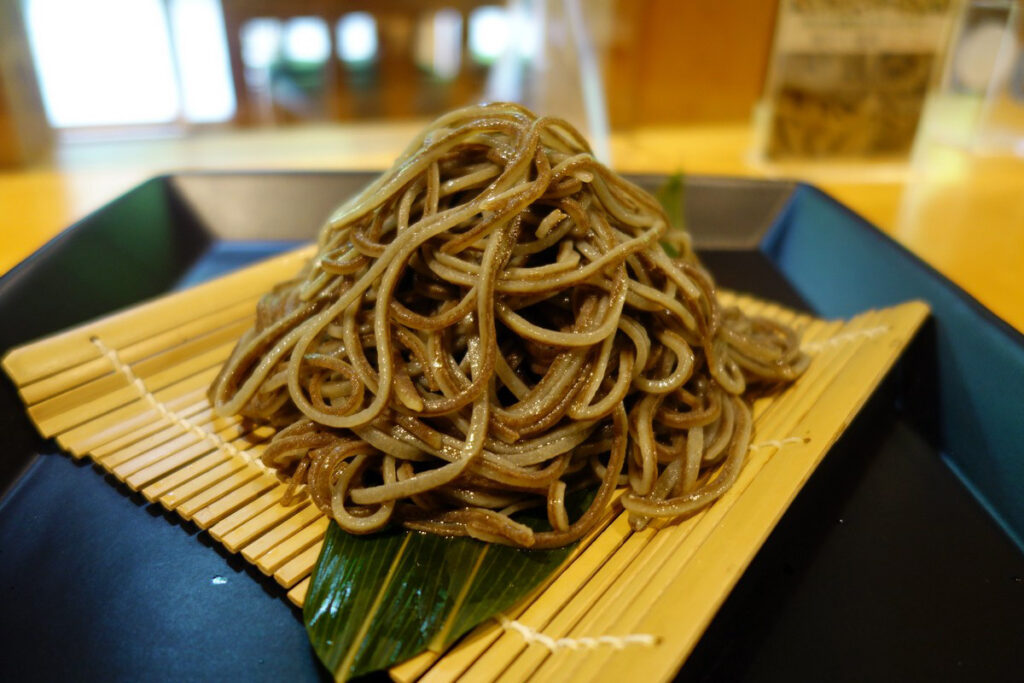
This time, I ordered the “Yoake Soba.” It’s a refined dish where the dark night sky is represented by fine soba particles, and the dawn’s white is portrayed using Sarashina flour. They make it without using wheat flour as a binder or kneading it in hot water. In essence, it embodies the philosophy of making soba without adding or subtracting anything.
What can be said about this “Yoake Soba” and all the other dishes is that the aroma of the soba is a bit unique, which might divide people based on their preferences.
This soba-making method uses the “oyamabokucho” mountain vegetable as a binder, a traditional technique from the Kiso region. Furthermore, they age the soba flour, which means they’re deviating from the commonly accepted “soba is best when ground, made, and boiled fresh” concept.
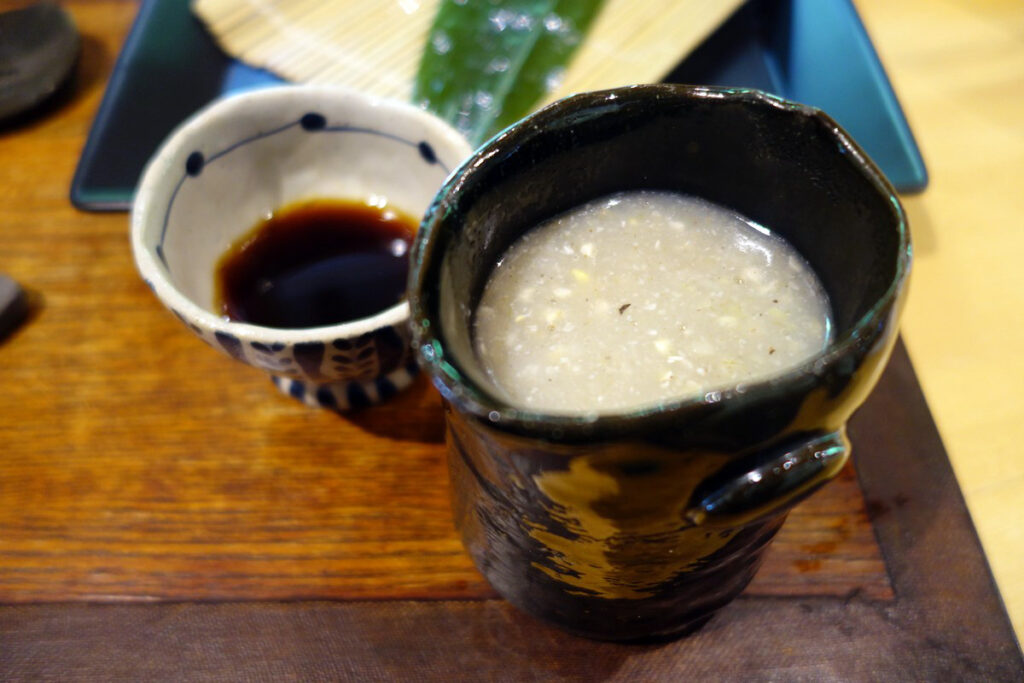
Their soba-yu (soba water) is also unique.
It’s thick, almost like soba flour just before it becomes soba-ko, and the soba’s powderiness is apparent in the soba-yu.
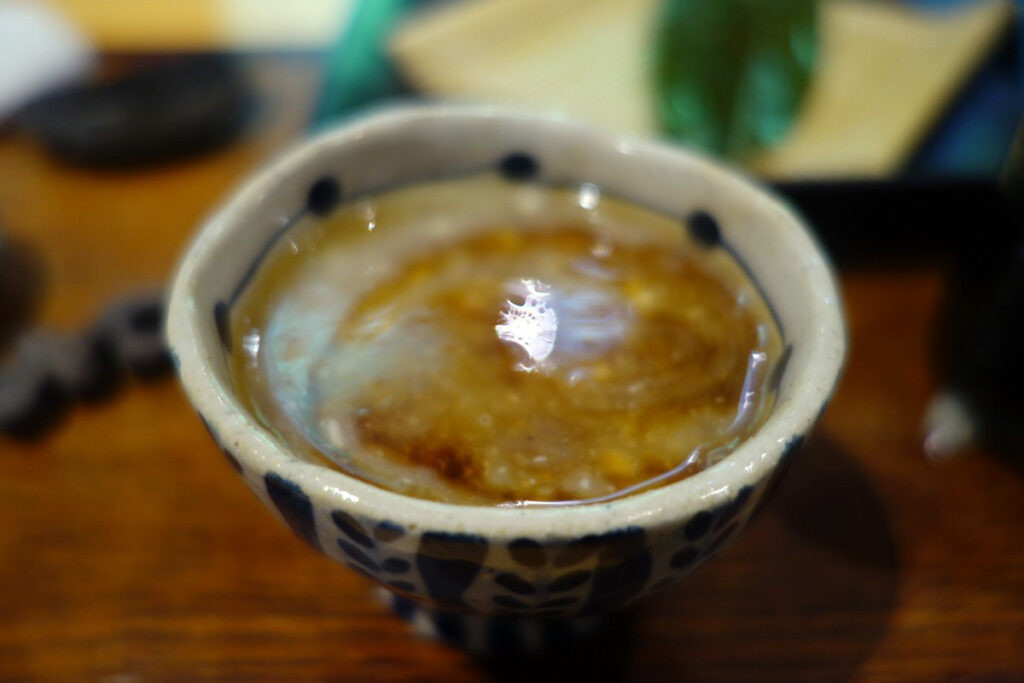
As mentioned before, preferences may vary, but it’s important to appreciate that not all soba shops need to aim for the same standards.
This diversity is something to be thankful for when it comes to soba.
Menu
【Soba】
“Gokukoshigiki Kanzarashi Jukusei Mori Soba” – 1,320 yen
“Gokukoshigiki Kanzarashi Jukusei Oroshi Soba” – 1,650 yen
“Gokukoshigiki Kanzarashi Jukusei Ikasumi Soba” – 1,870 yen
“Gokukoshigiki Kanzarashi Jukusei Yoake Soba (Limited to around 8 servings)” – 1,650 yen
【A la carte dish】
“Soba Gaki” – 880 yen
“Yaki Soba Gaki” – 1,100 yen
*The menu and prices are provided for reference only. Please keep in mind that they may change depending on the season and the availability of ingredients.
How to make a reservation
Reservations not accepted.
Map/Access
1 minute walk from the Kibikihara Bus Stop on the Kiso Town Public Bus Kaida Plateau Line. Approximately 15 minutes by car from JR Chuo Line’s Kiso-Fukushima Station.
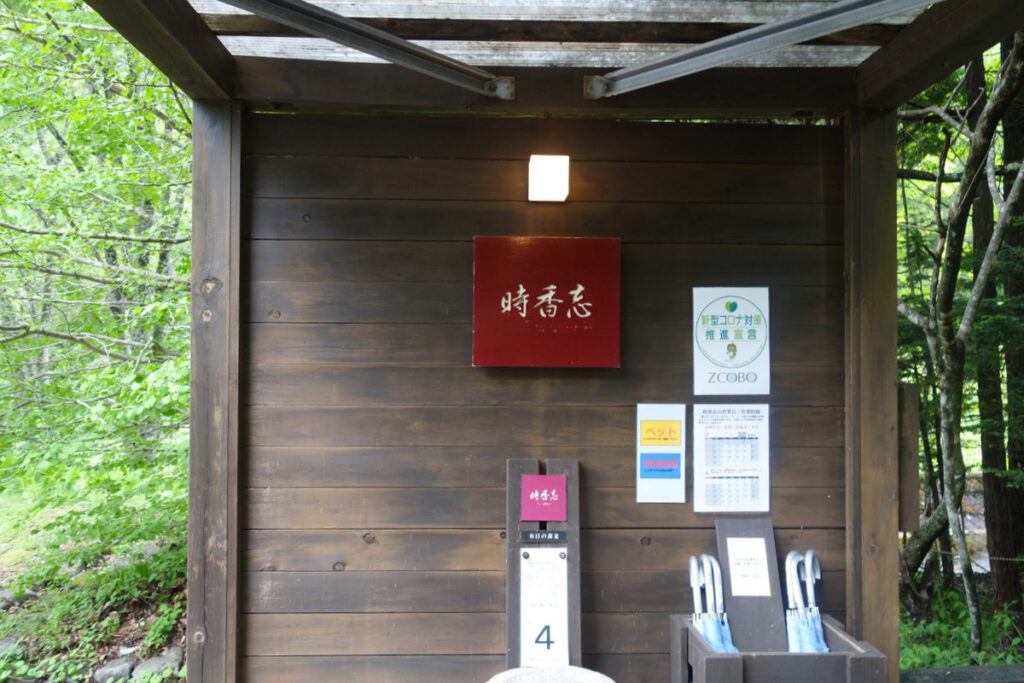
–Restaurant Information on “Zcobo”–
Business Hours: Lunch 11:00 AM – 1:00 PM
Closed: Saturdays to Mondays, with occasional irregular closures
Phone Number:0264-27-6428
Address: Address: 8990 Shinkai Shibahara, Kiso-cho, Kiso-gun, Nagano 397-0001, Japan
▽Related article▽
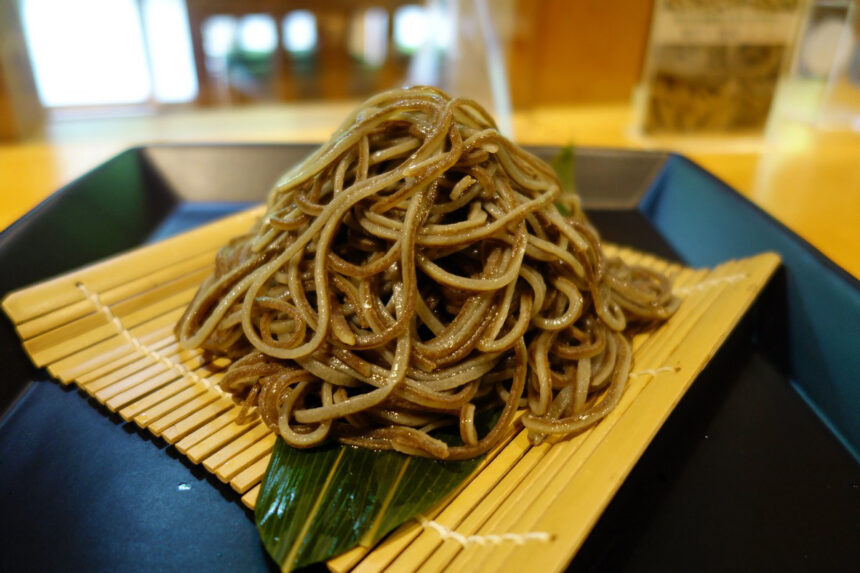
![Recommended Top 5 Gourmet Restaurants from Nagano Kiso to Narai-juku [Foodie’s Town Guide]](https://foodies-asia.com/en/wp-content/uploads/2023/09/DSC09248-150x150.jpg)
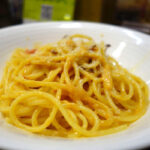
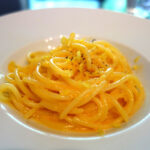
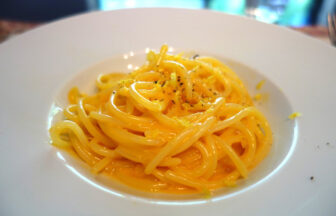
![4 recommended tonkatsu restaurants in Nagano and Matsumoto City. [my best series]](https://foodies-asia.com/en/wp-content/uploads/2023/09/DSC07520-336x216.jpg)
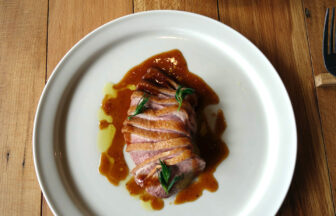
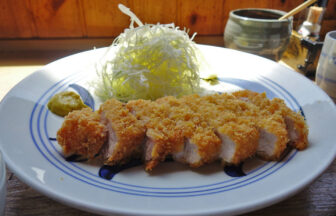
![[All over Japan] Michelin-starred soba restaurants](https://foodies-asia.com/en/wp-content/uploads/2023/02/DSC00025-336x216.jpg)
![【下呂温泉】ミシュランに掲載されたレストランス全店一覧 [フーディーズ・タウンガイド]](https://foodies-asia.com/en/wp-content/uploads/2022/04/DSC08809-336x216.jpg)